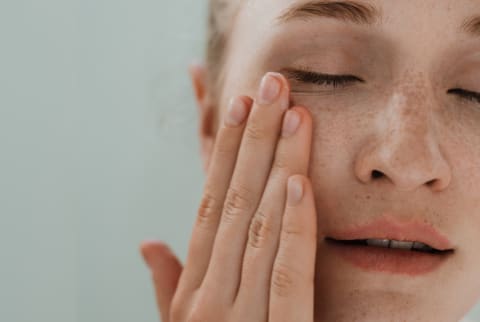Advertisement
It's Time To Start Treating Wrinkles At Their Source — Here's How


When it comes to maintaining smooth skin free of fine lines, there are just as many do's as there are don'ts (even though it can feel like the latter dominates beauty conversations). Piling on harsh products and getting too much sun exposure without adequate protection are well-known no no's.
But negatives aside, there's a lot you can do to promote tighter, more elastic skin. Better to be proactive, no? Here's one quick, daily tip that addresses wrinkles at their root cause.
Why you should consume collagen daily for firmer skin
It's simple: A loss of collagen causes wrinkles. But what does collagen have to do with skin aging, anyway? Well, let's not forget that your skin is made up of collagen. It's an essential part of the structure of our skin, bone, cartilage, and muscle that helps tissues to be more elastic and withstand stretching (so, for example, it keeps skin looking young and supple).
While you do make your very own supply of collagen naturally, it declines as you age. Starting in your 20s, collagen levels decrease about 1% each year1 (we know—much sooner than expected). Plus, other lifestyle and environmental factors can reduce your collagen production, such as sun damage, high-sugar diets2, stress, and more—you can read about all of them here.
So when your collagen begins to degrade at a quicker rate than you naturally produce it, whether that's caused by environmental changes or age, that's when your skin's elasticity and tightness become compromised (among other full-body effects).
The answer: While you can't apply collagen to your skin and expect it to replenish your internal bank, you can ingest it. Specifically, hydrolyzed collagen peptides have been shown to help promote the body's natural production of collagen1 and other molecules that make up the skin, like elastin and fibrillin—so keep an eye out for "hydrolyzed collagen peptides" on your product labels.
Not sure where to look? Here's a curated list of the nine best collagen supplements on the market, (all backed by a nutrition Ph.D.) to get you started.
The takeaway
If you're already doing what you can to protect the skin topically, good on you. The next best thing you can do is work on skin aging at its core—which means increasing your collagen production via supplementation and topical products like retinol (though be mindful not to overdo it).